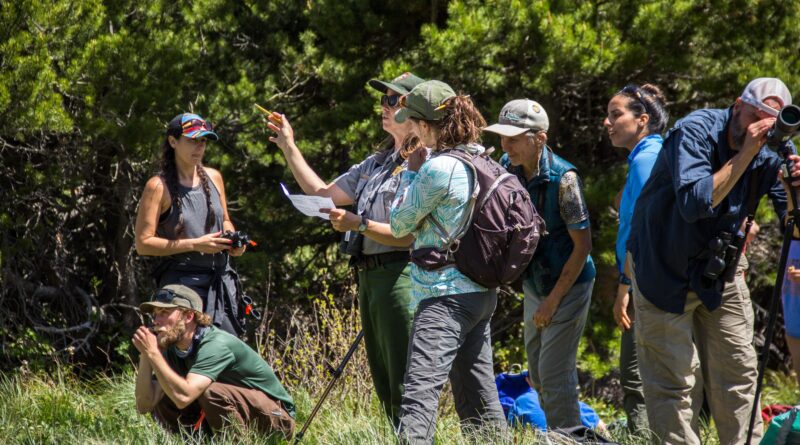Citizen Science: A Complement to Traditional Research
It has not been long since citizen science was fully owned by unprofessional scientists. In the 18th century, most renowned scientists of the era were not entirely devoted to one profession due to the financial difficulties they had as unpaid scholars. Charles Darwin sailed as a companion for an opportunity to collect valuable data that later contributed to his groundbreaking ideas about evolution; Isaac Newton worked as a farmer until he invented the first practical telescope. Although scientists have become financially stable and provided with abundant scientific equipment in recent years, citizen science should continue to thrive. Citizen science, a type of scientific research that involves the public collecting and analyzing data voluntarily, has unique advantages that traditional investigation methods lack. Citizen science offers numerous benefits, including strengthening scientific literacy, promoting community engagement, and enabling massive data collection.
First, citizen science promotes scientific literacy by offering interactive learning opportunities and encouraging critical thinking skills. Scientific literacy, an ability to derive questions and conclusions based on scientific knowledge, is considered an integral factor in becoming a critical scientist since it allows people to “make the best decisions possible with the best available knowledge” (Garbacz). While textbook science whose main purpose is memorization of basic scientific formulas and concepts does not require reasoning skills, citizen science tests the participant’s ability to interpret unexpected results with limited data and knowledge. Hyunjin Kang, a citizen scientist at Sangsan High School, stated that he learned how to use high school-level physics to explain when he “[observed] unexpected results” in his experiment, conducted with common materials such as straws and shampoo bottles. Because of insufficient resources and expertise, volunteers in citizen science are often challenged to elaborate on their previous knowledge to analyze unanticipated results, thus developing the capacity to draw evidence-based conclusions. Additionally, the general guidelines for success in citizen science have emphasized that volunteers should “have a hypothesis in mind, even if it is only a question like: ‘how is X changing’” (Silvertown 470). By explicitly suggesting that citizen scientists devise a research-driven inquiry prior to their participation, it is evident that scientific literacy is valued in citizen science.
Moreover, citizen science builds community bonds and fosters active participation in further scientific research through a collaborative work process. Collaboration is regarded as one of the most important aspects of citizen science, given that it is also referred to as “a type of crowdsourcing,” which involves collective intelligence to find an answer to a challenging problem (Park 14). For example, over 53% of the seasoned participants of the COASST (Coastal Observation and Seabird Survey Team) “consider citizen science to be a social activity” as a motivation to continue the collaborative research project (Hickey). This indicates that the social connections developed by citizen science encourage the continued participation of the individuals since the majority of returning citizens see social interaction as a significant advantage. Also, since the development of the software that enables convenient data exchange between the volunteers participating in citizen science projects, the community of citizen scientists has now been expanded to a global scale. Through the use of data-sharing software, the Evolution Megalab, a citizen science project that allows the general public to take part in evolution research, was able to “[involve] collaborators in 15 countries” all over Europe (Silvertown 468). The fact that the increased usability of software has made the interactions between the volunteers in different countries possible shows that collaboration in citizen science can flourish.
Lastly, citizen science facilitates the collection of vast amounts of data that would otherwise be challenging to gather. Besides “scientific research that involved the general public,” the goal of citizen science, in general, can also be described as “the collection of data conducted by unprofessional individuals,” which emphasizes the importance of the data collection portion in citizen science (Park 12). Although citizen science is currently applied to various types of data collection, it is most effective when collecting large-scale data. In fact, “30% of data that is stored on the GBIF (Global Biodiversity Information Facility) have been collected by citizens” (Park 17). Considering the vast scale of databases owned by the GBIF, it can be inferred that citizen science’s contribution to large data collection is significant. Furthermore, as unprofessional scientists have gained access to data collection software that used to be only accessible by institutions, the accuracy and the scale of citizen science-based data are amplified. For instance, Logger Pro is one of the most widely used data-collecting software that citizen scientists use “to collect some more accurate data” (Roh).
Citizen science has unique advantages that make it a vital approach to scientific study. Despite the financial stability and resources available to professional researchers, citizen science necessitates its continuance. By promoting scientific literacy, citizen science offers hands-on learning opportunities and encourages critical thinking skills. It also fosters community engagement, making social bonds among volunteers and expanding the global network of citizen scientists. Moreover, citizen science enables vast data collection, directly contributing to research conducted by professional institutions. Based on the public’s experience working as citizen scientists, they can be better prepared for their future scientific careers or other activities that involve scientific reasoning
Works Cited
Garbacz, Mary. “What Is Science Literacy and Why Is It Important?” What Is Science Literacy and Why Is It Important? | Strategic Discussions for Nebraska, sdn.unl.edu/article/what-science-literacy-and-why-it-important. Accessed 31 May 2023.
Hickey, Hannah. “What Motivates People to Join – and Stick with – Citizen Science Projects?” UW News, www.washington.edu/news/2019/07/23/what-motivates-people-to-join-and-stick-with-citizen-science-projects/. Accessed 31 May 2023.
Kang, Hyunjin. Personal interview. 20 May, 2023.
Park, Jin Hee. “The Current State and Tasks of Citizen Science in Korea.” Journal of Science and Technology Studies, vol. 18, no. 2, 2018, pp. 7–41.
Roh, James. Personal interview. 22 May, 2023.
Silvertown, Jonathan. “A New Dawn for Citizen Science.” Trends in Ecology & Evolution, vol. 24, no. 9, 2009, pp. 467–471, https://doi.org/10.1016/j.tree.2009.03.017.

